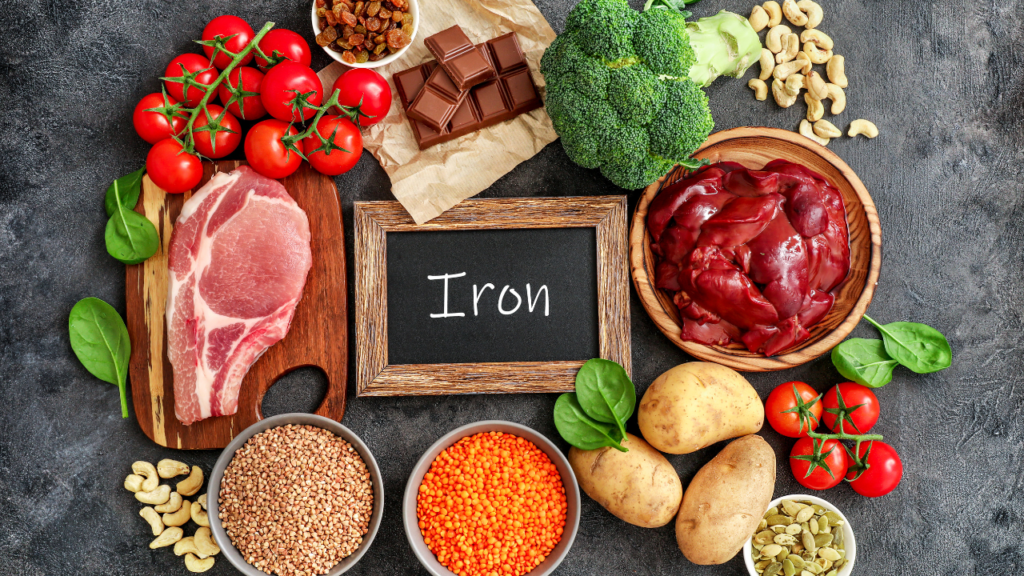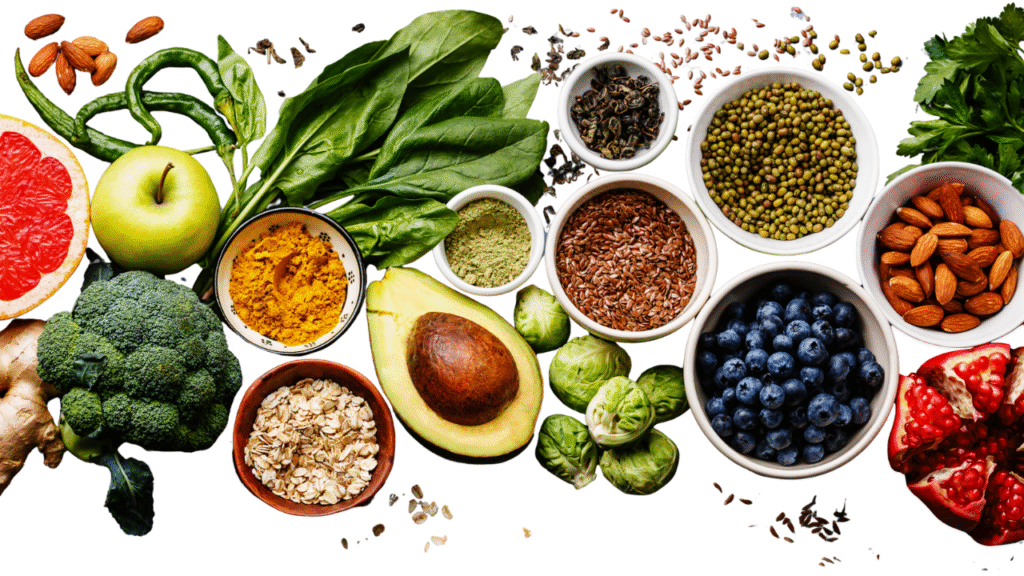
Chicory or succory, or Cichorium intybus, is a perennial herb with tap roots that usually reach 2-4 feet. It is popularly known as Chicory and sometimes called blue sailors or succory. Chicory (Cichorium intybus) is a flowering roadside weed of the Asteraceae family. It is a robust plant that Native American tribes have used for centuries for its medicinal uses.
It is native to Europe, Australia, New Zealand, northern and southern Africa, and America and has wide varieties cultivated worldwide.
Due to its rich, robust flavor, it has a long history of usage in traditional herbal remedies and has gained popularity as a coffee alternative today.
Chicory can also be eaten as a food and consumed as a beverage making it the number one coffee substitute.
It contains a particular class of carbohydrates known as fructans, a group containing Inulin (not to be confused with insulin) and oligofructoses.
Inulin, a form of soluble fiber that encourages the growth of good bacteria in the stomach, is abundant in the chicory plant’s roots. Moreover, it possesses potent anti-inflammatory and antioxidant properties.
Chicory has bright blue flowers and toothed leaves and is often considered a weed. It is easy to grow in medium moisture, well-drained soils in full sun and prefers neutral to alkaline soils. However, it thrives poorly in the heat and humidity of the deep South.
It is commonly grown and harvested as the salad green known as endive.
The herb has been used as a liver tonic and is effective against hepatitis, jaundice, liver congestion, liver enlargement, and other spleen and liver disorders.
This article will look at the many benefits of Chicory and the potential side effects and uses of this powerful plant.
Health Benefits
1. Aids in the reduction of gastrointestinal issues
Making Chicory a regular diet is a great way to help your digestive system. In addition, Inulin, found in Chicory, is an effective prebiotic. A prebiotic is a plant dietary fiber that helps the body’s beneficial microorganisms thrive.
Inulin is helpful for a wide range of gastrointestinal and intestinal issues. As Inulin actively lowers the acidity level of the body’s numerous systems, it is commonly used to treat acid reflux, indigestion, and other similar conditions.
2. Respiratory Disorders:
The herb, carrots, and celery juice effectively treat asthma and hay fever. In cases of chronic bronchitis, a powder made from the plant’s dried root works well as an expectorant.
3. Liver and gallbladder functions:
The plant’s flowers, seeds, and roots are used medicinally to relieve liver pain. A decoction of these three plant sections can help with liver sluggishness, biliary stasis, jaundice, spleen enlargement, and liver torpidity. In addition, the juice of this plant is beneficial in enhancing bile secretion, which leads to efficient liver and gall bladder function.
4. Anaemia:
A combination of Cichorium intybus and celery or parsley helps relieve anemia. It is an effective blood tonic and helps in relieving anemic patients.
5. Antioxidant properties:
High quantities of antioxidants found in chicory roots can protect the body from free radical damage and reduce the chance of developing chronic diseases.
Studies have shown that chicory root has a high antioxidant capacity and may effectively reduce oxidative stress in the body.
6. Anti-inflammatory properties:
Chicory root has anti-inflammatory chemicals that may help lessen the risk of chronic diseases like heart disease and diabetes.
Studies have found that chicory root extract may help to reduce inflammation in the body by decreasing the production of inflammatory markers.
7. May lower blood sugar levels:
Chicory root has been shown to have a blood sugar-lowering effect, which may benefit people with diabetes or pre-diabetes. In addition, studies have found that consuming chicory root extract may help to lower blood sugar levels by improving insulin sensitivity and decreasing glucose absorption.
8. Arthritis Relief
Arthritis can be excruciating. Chicory treats arthritis naturally. Studies show that Chicory has powerful anti-inflammatory qualities, making it a popular arthritis and osteoarthritis pain reliever.
One study treated pain with Chicory. Those people have arthritic pain relief. Chicory also relieves muscle and joint pain as an anti-inflammatory.
9. Constipation relief
Chicory root is high in vitamin K, C, beta-carotene, and choline. In addition, Chicory root’s inulin fiber promotes gastric juice secretion and regular bowel motions.
It would help digestion, minimizing constipation. Proper digestion can treat many gastrointestinal diseases. In addition, it may reduce the incidence of colon and stomach cancers.
10. May help to reduce weight:
Chicory is a natural dietary fiber that can help individuals lose weight and maintain an ideal weight. It also helps regulate ghrelin, an amino acid peptide hormone associated with hunger and overeating, and promotes satiety. Therefore, taking Chicory is an effective way to lose weight naturally.
11. May help to reduce pain:
Native American tribes have traditionally used chicory root to reduce pain and inflammation, particularly in the joints. In addition, studies have found that compounds found in chicory root may have pain-relieving and anti-inflammatory effects.
12. May help improve skin health:
Chicory root is rich in vitamin A, essential for maintaining healthy skin. Vitamin A has been shown in studies to promote skin health by boosting collagen formation and making fine lines and wrinkles less noticeable.
13. Enhanced resistance to illness
Chicory’s antibacterial capabilities assist in strengthening the immune system by inhibiting the growth of harmful microorganisms. In addition, phytochemicals found in Chicory have been shown to eliminate harmful free radicals in the body. As a result, people would be less likely to develop serious illnesses like cancer and heart disease.
14. Reduces stress levels and anxiety attacks
Caffeine is usually found in coffee and tea, but small traces are also in decaffeinated beverages. Chicory is a good substitute for reducing caffeine consumption and stress levels, as its soothing properties minimize anxiety and promote peace of mind. It is also among the finest treatments for sleep issues because it is considered a healthier alternative to traditional synthetic sleeping drugs.
Uses of Chicory
Edible Usage
The leaves of the Chicory are edible. Despite the bitterness, these leaves are used in many cuisines home to different countries of the world. Usually, the leaves are parboiled to reduce the bitter taste.
The plant’s root extracts account for the chicory tea beverage. The roots of Chicory are baked, roasted, ground, and used as a coffee substitute.
Uses
Inulin derived from chicory root has widespread application in modern food production as a sugar substitute and fiber enhancer.
Some varieties of this species, such as the radicchio, are cultivated as leafy vegetables. Other types are grown for their dried roots and used as a coffee substitute.
Side Effects
Chicory root can have potential side effects, such as gas and bloating, allergic reactions, blood-thinning medication, diabetes medication, birth control pills, sedatives, and other supplements. However, it is essential to remember that consuming chicory root in moderate amounts is generally considered safe. Still, if you have health concerns or are taking any medication, it is best to consult your doctor before consuming it.
In addition, there is some evidence that Chicory may influence bile production in your body, so if you have gallstones, only take chicory supplements under medical supervision. This herb has no severe side effects, but you might encounter minor side effects like skin irritation if bare hands handle the plant.
Conclusion
Chicory (Cichorium intybus) is a flowering roadside weed of the Asteraceae family that Native American tribes have used for centuries for its medicinal uses. It helps to reduce inflammation in the body by decreasing the production of inflammatory markers. It is a good substitute for reducing caffeine consumption and stress levels, as its soothing properties minimize anxiety and promote peace of mind.
Where to Buy
Shop on Amazon
- Amazon
- Product Resources
- Healthy Herbs and Spices
- Online
- Bulk Supplement
- Mountain Rose Herb
- Now Foods Herbal Products
LINKS TO RESEARCH REFERENCES
- Cichorium intybus: Traditional Uses, Phytochemistry, Pharmacology, and Toxicology – PubMed (nih.gov)
- Cichorium intybus (Blue Sailors, Chicory, Coffeeweed, Common Chicory, Cornflower, Italian Dandelion, Succory) | North Carolina Extension Gardener Plant Toolbox (ncsu.edu)
DISCLAIMER OF MEDICINE
This information is not meant to provide medical advice or replace a personal physician’s advice or treatment. All readers of this information, especially those taking prescription or over-the-counter medications, should check with their doctors before initiating any nutrition, supplement, or lifestyle program. Moreover, the Food and Drug Administration has not evaluated the information or commodities on this website.




